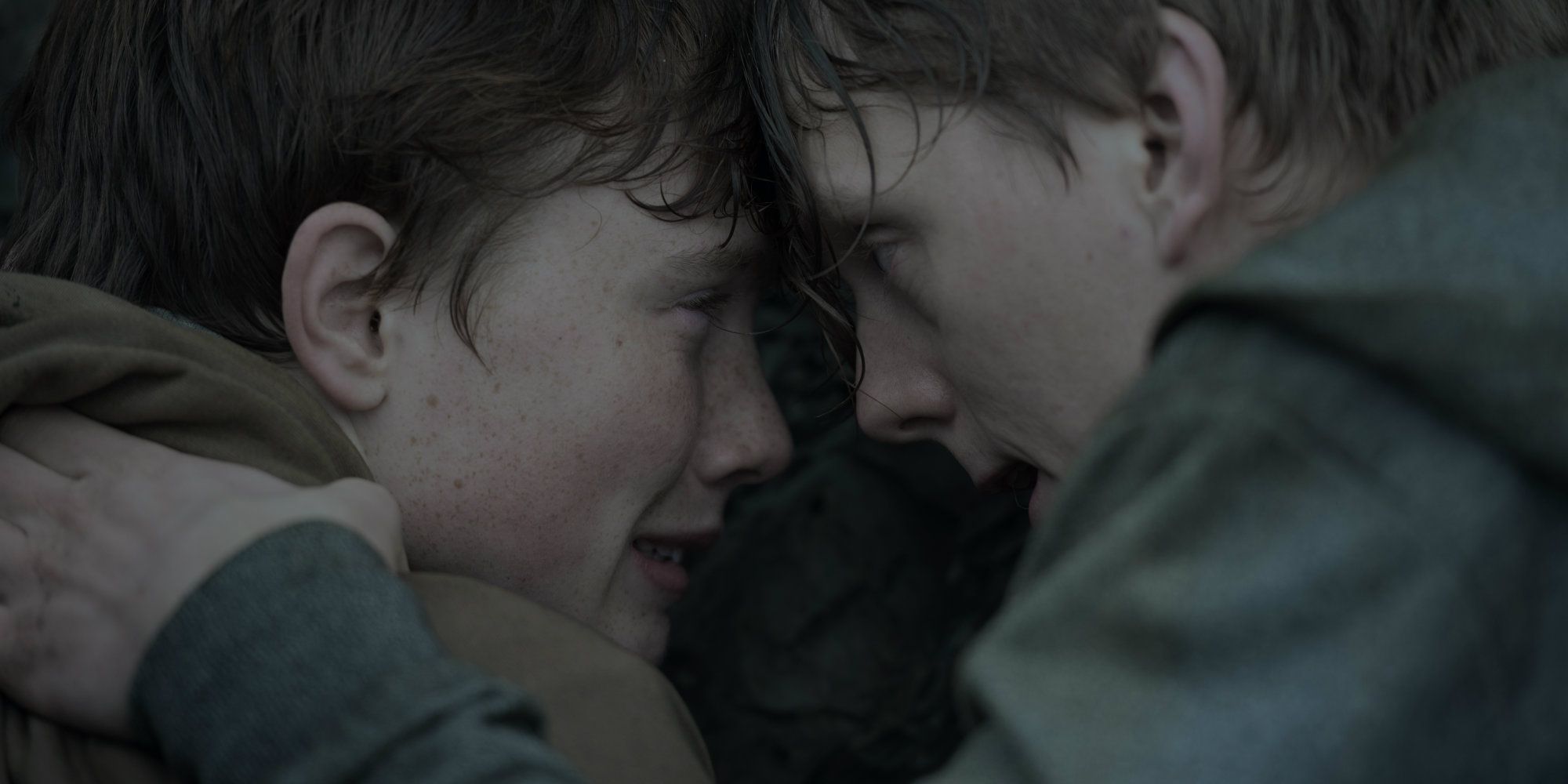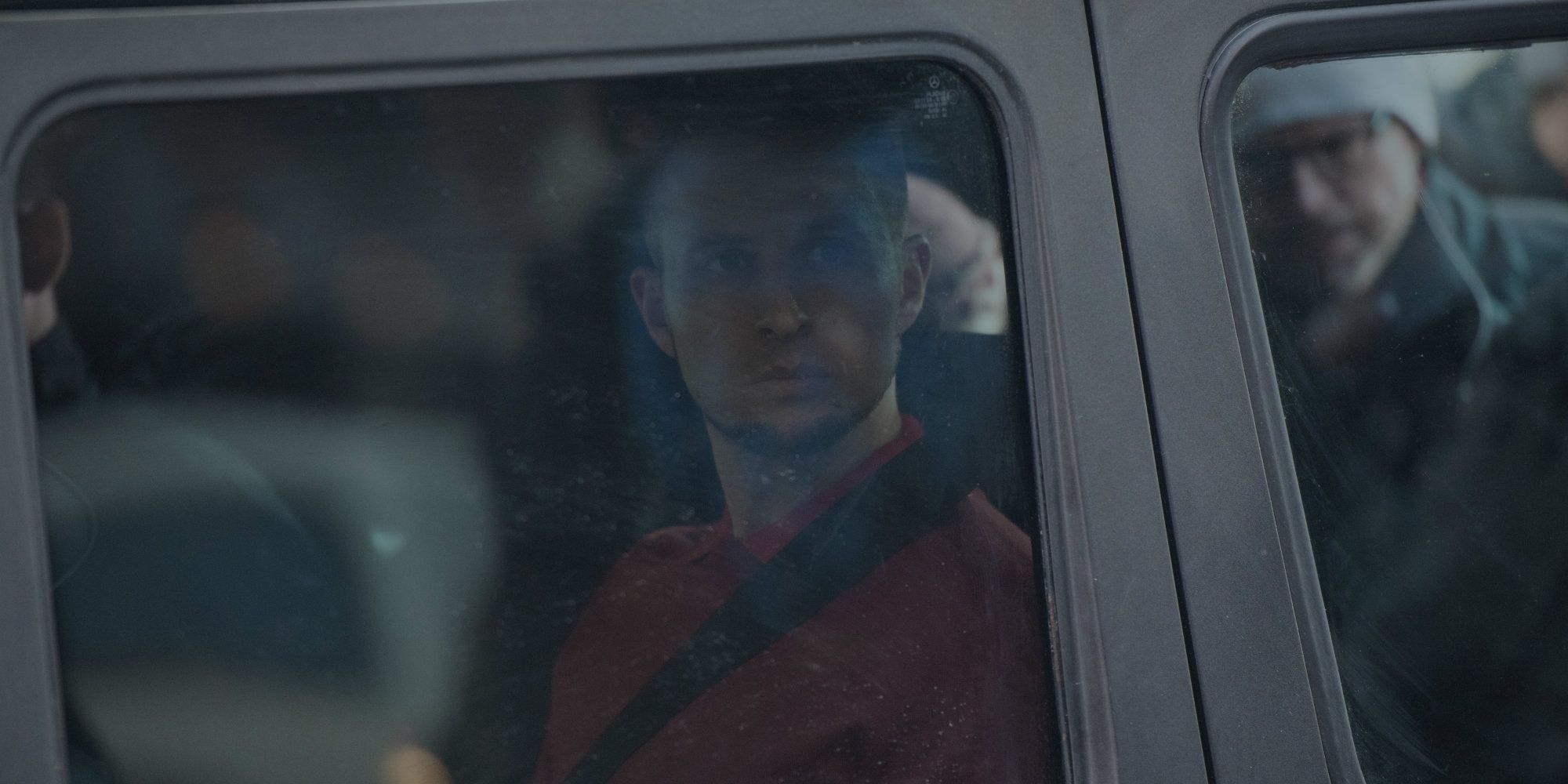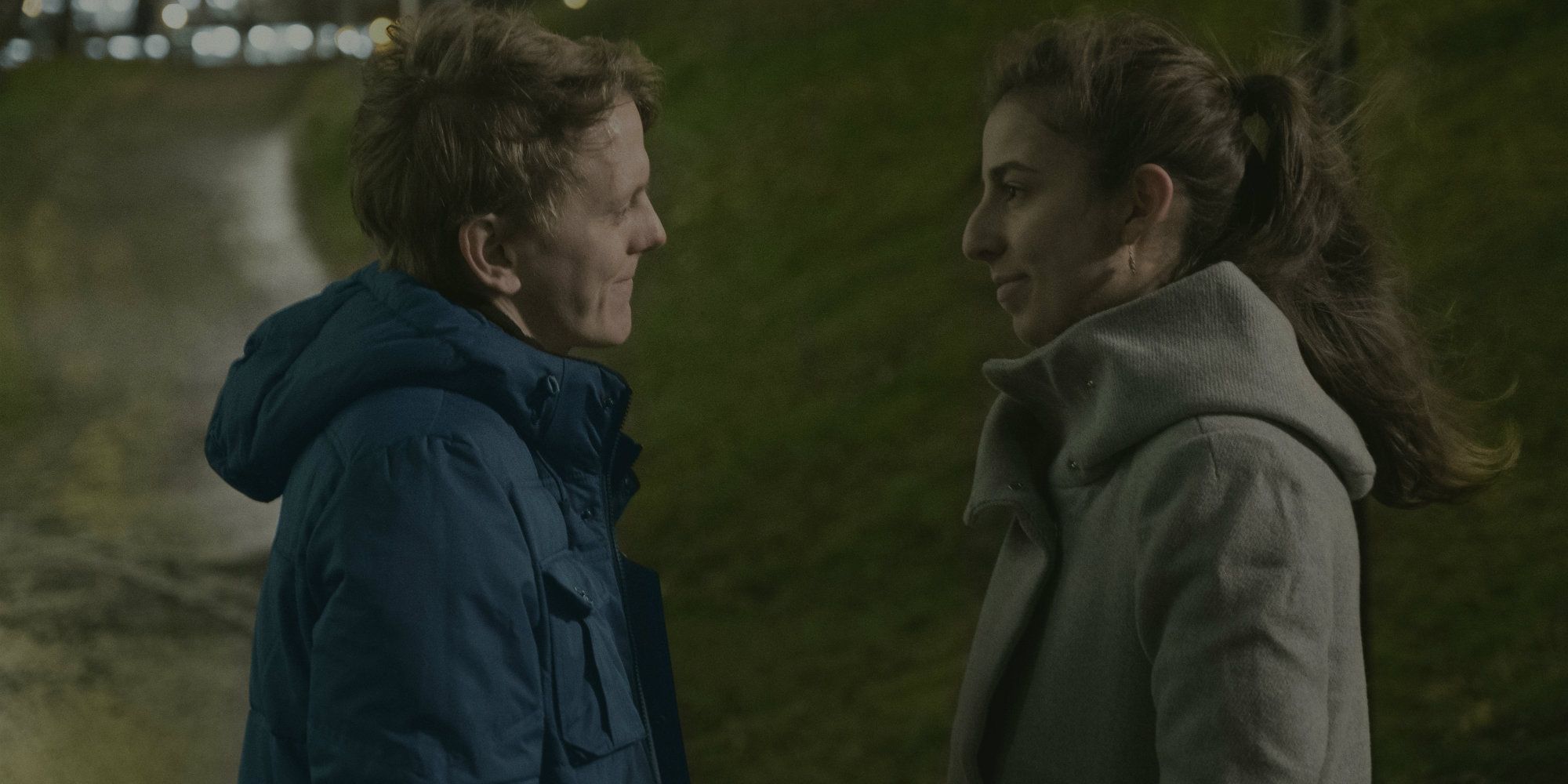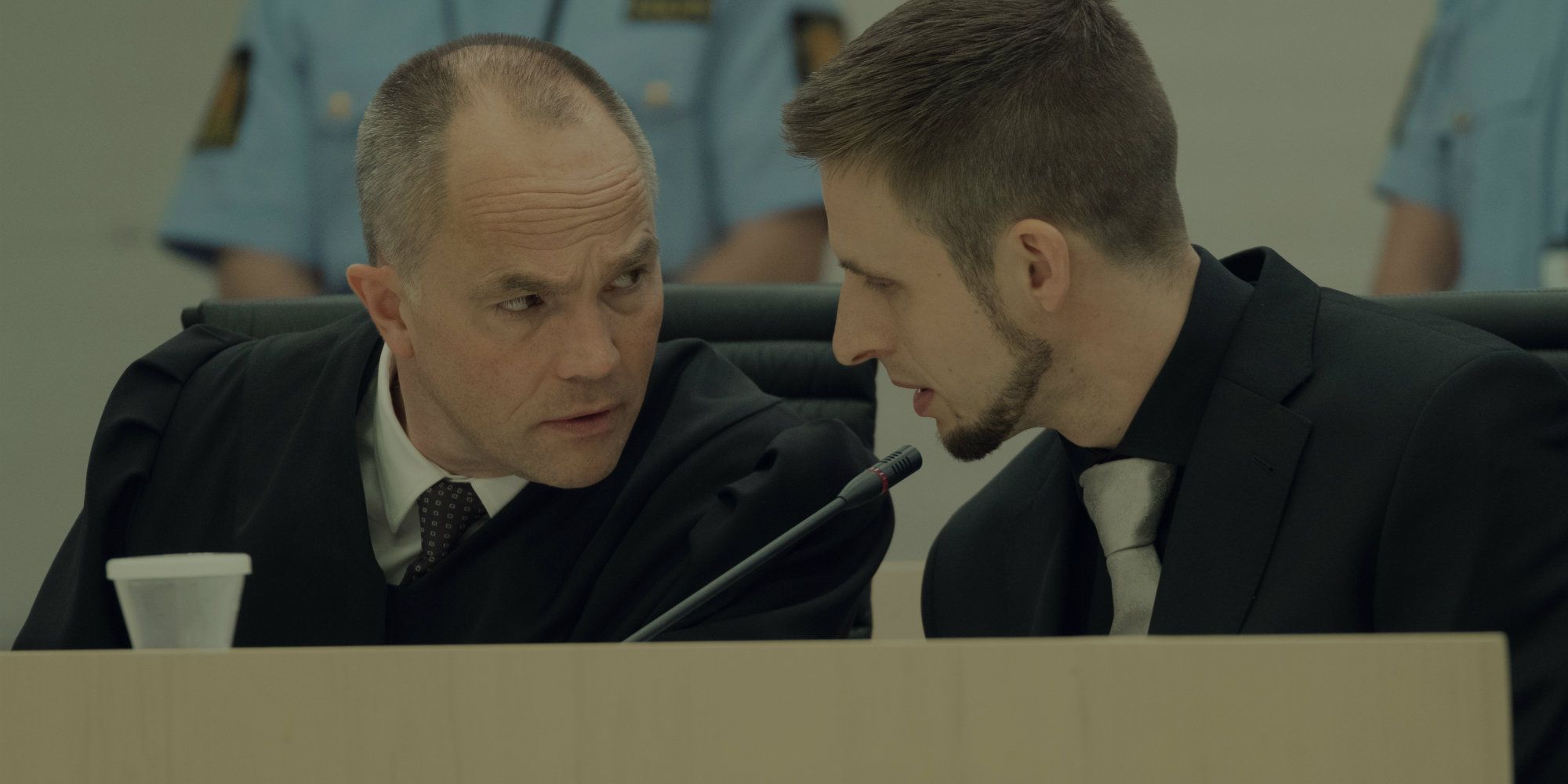
Despite some general storytelling issues, Greengrass succeeds in delivering another well-crafted and intelligent docudrama-thriller with 22 July.
In-between his efforts on the Bourne movies, journalist-turned filmmaker Paul Greengrass has spent much of his career making docudrama-thrillers about real-world events, ranging from the September 11 terrorist attacks on the U.S. (United 93) to the hijacking of the Maersk Alabama in 2009 (Captain Phillips). While there's an inherent risk of exploiting a real-world tragedy that comes with any such project, Greengrass has long been celebrated for his ability to dramatize terrible events on the big screen in a manner that's intense, yet sensitive and ultimately insightful in its presentation. Thankfully, that remains the case with his new film 22 July, even if it doesn't necessarily represent the director at his finest. Despite some general storytelling issues, Greengrass succeeds in delivering another well-crafted and intelligent docudrama-thriller with 22 July.
22 July picks up on July 21, 2011 in Oslo, Norway, as Anders Behring Breivik (Anders Danielsen Lie) - a self-declared right wing extremist - prepares to carry out a terrorist attack on the city the next day. He begins his assault by setting off a bomb in a van near the main office of the then-current Norwegian Prime Minister Jens Stoltenberg (Ola G. Furuseth), killing eight people in the process. Breivik then proceeds to continue his attack by gunning down 69 members of a summer camp organized by the AUF - the youth division of the Norwegian Labour Party - on the island of Utøya, before he is ultimately apprehended by the police and taken into custody.

Among the members of the summer camp is one Viljar Hanssen (Jonas Strand Gravli), who manages to survive Breivik's attack despite being shot multiple times and left permanently maimed. As Viljar struggles to recover both physically and psychologically from what happened to him (along with everyone else who survived the Utøya shootings and their loved ones), Breivik works with his chosen lawyer Geir Lippestad (Jon Øigarden) to mount a defense and use his trial as a platform to publicly announce his political agenda (which calls for the immediate deportation of all Muslims and heavier restrictions on immigration to Norway, among other things). When it becomes clear to Viljar what Breivik intends to do, he grows increasingly determined to continue his rehabilitation and testify against him in court for not only himself, but also every other person whose lives were affected by what took place on July 22.
Adapted from the book One of Us: The Story of a Massacre in Norway -- and Its Aftermath by Åsne Seierstad, Greengrass' script for 22 July has a very clear-cut three act structure - with the first act focused on the July 22 attack, the second part set during its immediate aftermath, and the final third centered on Breivik's trial. The film is strongest during its first and third acts in particular, as those chapters (respectively) play to Greengrass' strengths as a suspense-thriller storyteller and provide the emotional payoff to Viljar and, thus, Norway's overarching journey of recovery and survival. It's the second act where things start to drag and get a little muddled, especially as 22 July splits its focus between not only Viljar's story thread, but also Lippestad and Breivik's trial preparation, and the investigation into Stoltenberg's administration and its failure to prevent a terrorist attack. While there's nothing in the second act that feels inessential, 22 July struggles to divide its attention evenly between its three plotlines and the film's pacing suffers for it.

On the whole, however, 22 July does a nice job covering a fair amount of narrative ground, even when taking its pretty substantial runtime into consideration. It helps that Greengrass (as he's known now for doing, as a director) never fully lifts his foot off the gas pedal and keeps the film's proceedings feeling on-edge throughout, even during its more purely dramatic portions. The filmmaker, working this time around with DP Pål Ulvik Rokseth (The Snowman) and Oscar-winning Argo editor William Goldenberg, uses essentially the same handheld camerawork and restless editing style that he has on his previous movies, in order to fully immerse viewers in the film's setting and action. At the same time, Greengrass slows things down a bit here and, in turn, delivers a movie that's more visually cohesive than some of his weaker efforts in the past (see the last Bourne sequel, in particular). This serves 22 July well, allowing it to effectively work as both a grounded drama and thriller.
Given the sheer amount of information that 22 July strives to cover, though, there's not a lot of room for the film's actors to really shine - not in the way that Barkhad Abdi and Tom Hanks did in Captain Phillips, for example. Even so, the 22 July cast is uniformly strong across the board, with Gravli especially doing an excellent job of portraying Viljar's struggles with his physical injuries, PTSD, and the sheer amount of emotional baggage that he's saddled with after barely managing to escape the attack on Utøya with his own life. Actors like Thorbjørn Harr and Isak Bakli Aglen are similarly moving in their smaller roles as members of Viljar's family, as is Seda Witt as Lara Rashid, a young woman who starts to make a romantic connection with Viljar before both of their lives are shattered by Breivik's attack. As for Breivik himself: Lie is quite compelling in the role and portrays the terrorist as a fully-developed person - one whose rationalization of his behavior makes him chilling and pathetic in equal measure.

As with his previous films, Greengrass uses 22 July as a means for delivering larger sociopolitical commentary about the state of things in the world, specifically where it concerns the rise of xenophobic and nationalist ideologies in various countries (the U.S. included). While his scripted dialogue can start to become a bit on the nose as its strives to get these points across (especially in the third act), Greengrass largely succeeds in allowing the story here to shine a light on these issues organically, without getting up on his figurative soapbox to drive the point home. If there's a downside to the filmmaker's approach, though, it's that July 22 winds up handling its subject matter in a way that's more engaging intellectually than emotionally and, thus, lacks the emotional resonance of Greengrass' best work to date.
All things considered, however, Greengrass does a very good job of bringing the true story behind 22 July to cinematic life. The final result is a film that makes for an enlightening and otherwise respectful documentation of a horrifying real-world event, rather than one that comes off as exploitative or manipulative. 22 July is showing in select theaters now - in order to qualify for next year's major film awards shows - and it certainly benefits from being seen on the big screen, but can still be appreciated just as much as a Netflix Original on your home TV. While it's obviously not a light-hearted viewing experience, 22 July is very much worth checking out if you've enjoyed Greengrass' previous non-Bourne efforts and/or would like to know more about Norway's own infamous modern terrorist attack.
TRAILER
22 July is now available for streaming on Netflix and is playing in select U.S. theaters. It is 143 minutes long and is rated R for disturbing violence, graphic images, and language.
Let us know what you thought of the film in the comments section!
from ScreenRant - Feed https://ift.tt/2yvdOtz





No comments: